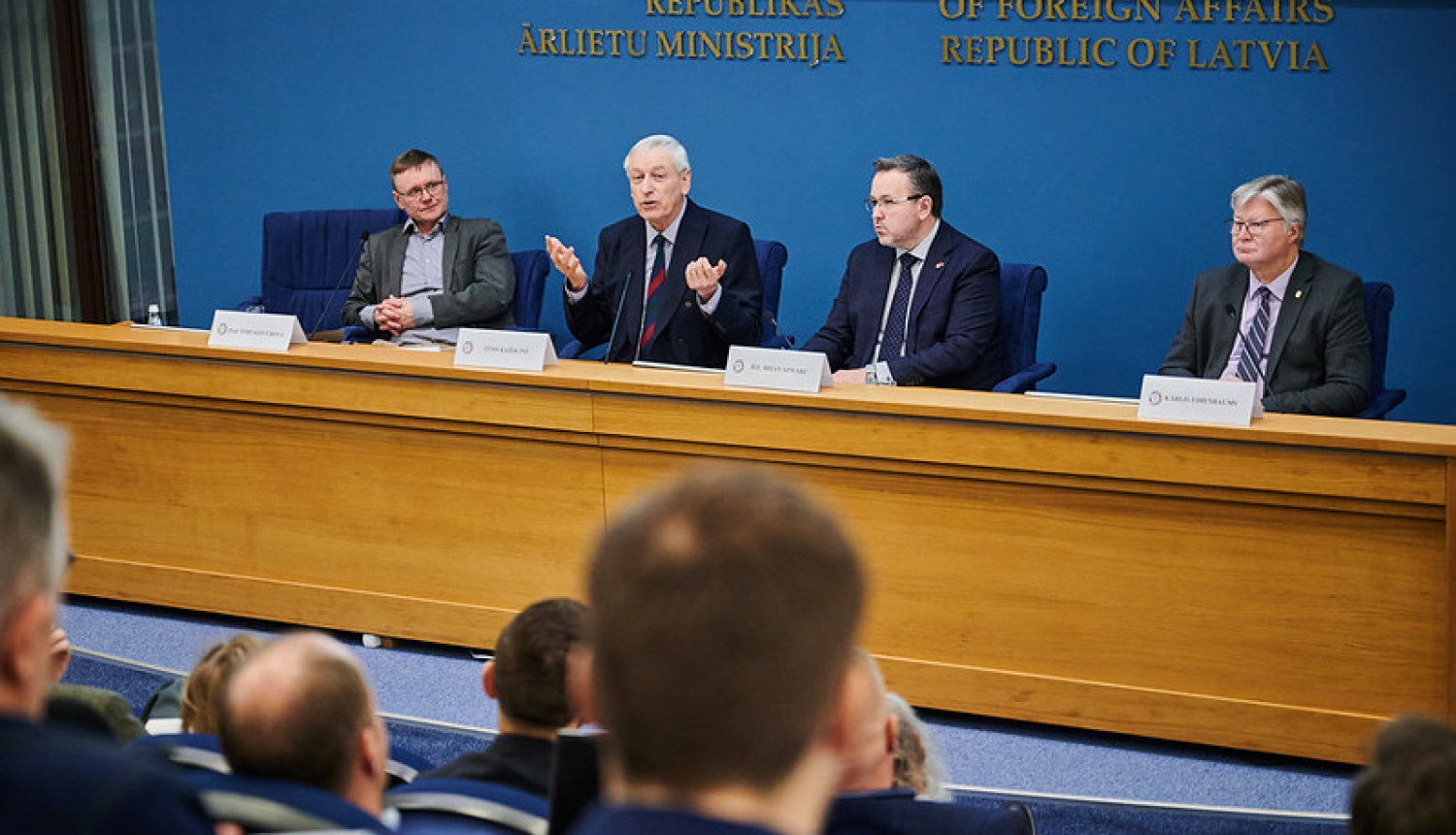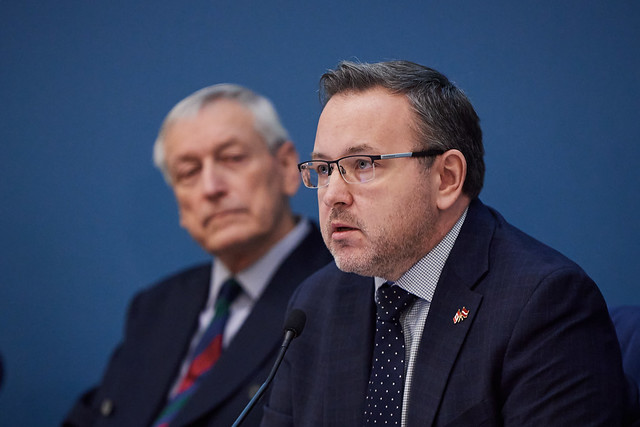On 14 December 2023, the Ministry of Foreign Affairs hosted a seminar “Latvia in the Arctic II”, convened by Latvia as a country presiding over the Nordic-Baltic cooperation format (NB8). The event titled “The Role of Polar Research in Strengthening Geopolitical Security” was organised by the Ministry of Foreign Affairs in partnership with the Polar Research Centre of the Faculty of Geography and Earth Sciences at the University of Latvia. The event brought together scientists, business people, members of public administration from Latvia and abroad, and foreign diplomats.
The event was the second discussion on the Arctic-related topics in this format since the Government of Latvia decided to submit Latvia’s candidacy for obtaining the status of observer to the Arctic Council. The discussion was moderated by Kārlis Eihenbaums, Ambassador-at-large for Climate at the Ministry of Foreign Affairs.
In his address to the participants, Andris Pelšs, State Secretary of the Ministry of Foreign Affairs, underlined that climate change in the Arctic had direct influence on the Baltic Sea region. With Finland, and eventually Sweden as well, joining NATO, the link between the Arctic and the Baltic Sea region is also going to increase in the field of security.
“Latvia will continue to build up its knowledge and research expertise in the matters related to the Arctic. Latvia is interested in contributing to the mitigation of climate change and get involved in the processes taking place in the region,” Andris Pelšs said.
The first session was devoted to analysis of the geopolitical and security situation in the Arctic. Professor Timo Koivurova from the Arctic Centre of the University of Lapland focused on latest developments in the region and the situation in the Arctic Council after Russia has launched a war against Ukraine.
Gen. Jānis Kažociņš, former Security Adviser to the President of Latvia, looked into security environment in the Arctic and the Baltic Sea region, while emphasizing the importance of the NB8 cooperation.
The Ambassador of Canada to Latvia, Brian Szwarc, offered a Canadian perspective on key matters in the Arctic context, including the need to strengthen defence capabilities.
The second session of the seminar addressed the polar research and innovation potential.
Professor Kim Holmén from the Norwegian Polar Institute presented the aspects of climate change in the Arctic and spoke about transnational research programmes, with particular attention to Svalbard and European Arctic.
Professor Jan Borm, representing the Malaurie Institute of Arctic Research – Monaco-UVSQ in France, introduced the audience to long-term studies in the field of climate change and the offer of Artic studies at the institute.
Jānis Karušs and Kristaps Lamsters, Associate Professors from the Polar Research Center of the University of Latvia, presented a brief resume on polar studies over the past decade at the University of Latvia and plans for the future, including the Latvian National Polar Research Programme. They underlined the interest of Latvian researchers and their capacity of contributing innovatively to polar research in the Arctic and the Antarctic. The researchers expressed their hope of Latvia eventually joining the Antarctic Treaty, which would make the involvement in research activities easier.
The discussion was concluded with an insight into innovations created in Latvia and into the offer of creative industries. Gatis Vectirāns, Chairman of the Board of N-LAB Research, a research and development centre, proposed robotic solutions for dangerous polar missions. Kaspars Avots, MP Industries Chief Operations Officer, looked into the ways of using green energy in polar environments. Krišs Zilgalvis, Art Centre NOASS Chairman of the Board, presented the ideas on the advancement of cooperation between creative industries and researchers, one of its objectives being the promotion of public interest in polar research.
Background information
The Arctic is a region where climate change occurs faster than elsewhere around the globe. The proximity of the Arctic to the Baltic Sea region, which has the potential of becoming a kind of testing grounds for mitigation of climate change and for adaptation, has sparked the interest of Latvian scientists, environmental experts and businesses in the region. Therefore, in 2021, the Government of Latvia decided on the need to apply for observer status in the Arctic Council. Such a status would enable Latvia to bring its contribution to mitigating climate change, gain in-depth knowledge about the ongoing processes in the Arctic region, and be part of them.
After Russia's full-scale invasion of Ukraine and the change in the situation in the Arctic Council, the Latvian government took a decision to postpone the submission of the observer state candidacy application until the full resumption of the Arctic Council’s activities or its restructuring. At the same time, work continues on building Latvia's capacity in Arctic issues.





